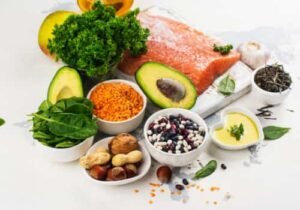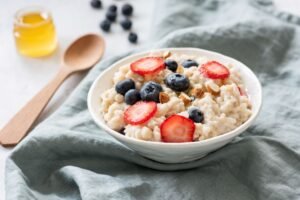How to Lose Weight Fast
Share on facebook Share on linkedin Share on whatsapp Share on tumblr Share on pinterest Share on telegram Losing weight is a goal that many people have, and for some, it can seem like an uphill battle. /*! elementor-pro - v3.5.2 - 28-11-2021 */ .elementor-widget-table-of-contents .elementor-toc__header-title{color:var(--header-color)}.elementor-widget-table-of-contents.elementor-toc--collapsed .elementor-toc__toggle-button--collapse,.elementor-widget-table-of-contents:not(.elementor-toc--collapsed) .elementor-toc__toggle-button--expand{display:none}.elementor-widget-table-of-contents

Losing weight is a goal that many people have, and for some, it can seem like an uphill battle.
Table of Contents
Introduction
However, there are ways to lose weight fast, and it’s possible to do so without putting your health at risk. In this article, we will discuss effective strategies for achieving fast and healthy weight loss.

Fast and Healthy Weight Loss
Before we delve into the strategies, it’s important to note that losing weight fast isn’t always the best approach for everyone. While it may be beneficial for some, it’s crucial to speak with a healthcare provider before making any significant changes to your diet or exercise routine. Additionally, weight loss is a gradual process, and losing weight too quickly can have negative consequences on your body, such as a slower metabolism, loss of muscle mass, and nutritional deficiencies. With that said, here are some tips on how to lose weight fast in a healthy manner.
Section 1: Focus on Your Diet

When it comes to weight loss, what you eat matters more than how much you exercise. While both are essential, your diet plays a more significant role in your weight loss journey. Therefore, focus on eating a healthy, balanced diet that’s rich in fruits, vegetables, lean protein, and whole grains. Cut back on processed foods, sugary drinks, and unhealthy fats, as these can hinder your weight loss progress.
1. Choosing Nutrient-Dense Foods: To optimize weight loss, it is crucial to consume a diet rich in nutrient-dense foods. These foods provide essential vitamins, minerals, and fiber, while keeping you satiated and satisfied. Include a variety of fruits, vegetables, whole grains, lean proteins, and healthy fats in your meals. These foods are not only low in calories but also provide the necessary nutrients for overall health.
2. Portion Control and Mindful Eating: Practicing portion control and mindful eating can contribute to weight loss success. Be mindful of your portion sizes and avoid eating until you are overly full. Pay attention to your body’s hunger and fullness cues, and eat slowly to savor your food. This can prevent overeating and help you develop a healthier relationship with food.
3. Meal Planning and Preparation: Meal planning and preparation can support your weight loss goals by reducing the likelihood of impulsive, unhealthy food choices. Plan your meals in advance and include a balance of nutrients in each meal. Prepare meals at home as often as possible, as this gives you more control over the ingredients and portion sizes. By having healthy meals readily available, you can avoid relying on convenience foods or fast-food options.
4. Tracking Your Food Intake: Keeping track of your food intake can help you become more aware of your eating habits and identify areas where you can make improvements. Consider using a food journal or a smartphone app to log your meals and snacks. This can help you identify patterns, such as emotional eating or mindless snacking, and make adjustments accordingly. Additionally, tracking your food intake can provide accountability and help you stay on track with your weight loss goals.
Section 2: Incorporate Exercise for Weight Loss

Regular exercise is an integral part of any weight loss plan. It not only burns calories but also improves overall health and well-being. Here are some strategies to incorporate exercise into your routine for effective weight loss.
1. Cardiovascular Exercises: Cardiovascular exercises are an effective way to burn calories and lose weight fast. You can incorporate exercises such as running, jogging, cycling, swimming, or brisk walking into your daily routine. Aim for at least 30 minutes of moderate-intensity cardio exercise each day to see significant results.
2. Strength Training: In addition to cardiovascular exercises, incorporating strength training into your fitness routine is crucial for weight loss. Strength training helps build lean muscle mass, which increases your metabolism and helps you burn more calories even at rest. Include exercises such as weightlifting, bodyweight exercises, or resistance band workouts to target different muscle groups. Aim to strength train at least two to three times per week, focusing on all major muscle groups for a balanced approach.
3. High-Intensity Interval Training (HIIT): High-Intensity Interval Training (HIIT) is a type of workout that alternates short bursts of intense exercises with brief recovery periods. HIIT workouts are highly effective for burning calories and boosting metabolism. They can be performed with a variety of exercises such as jumping jacks, burpees, squats, lunges, or mountain climbers. Incorporate HIIT sessions into your weekly routine, starting with shorter intervals and gradually increasing the intensity and duration as you progress.
4. Incorporate Physical Activity into Your Daily Life: In addition to structured exercise sessions, finding ways to incorporate physical activity into your daily life can help support weight loss. Look for opportunities to be active throughout the day, such as taking the stairs instead of the elevator, parking farther away from your destination, or going for a walk during your lunch break. Engaging in activities you enjoy, such as dancing, hiking, or playing sports, can also make exercise more enjoyable and sustainable.
5. Stay Consistent and Set Realistic Goals: Consistency is key when it comes to exercise and weight loss. Set realistic goals that align with your fitness level and schedule. Gradually increase the intensity and duration of your workouts over time to challenge your body and avoid plateaus. It’s important to listen to your body and allow for rest and recovery days to prevent overexertion or injuries. Find a balance that works for you, and remember that sustainable weight loss is a gradual process.
Section 3: Lifestyle Factors for Weight Loss

In addition to focusing on diet and exercise, certain lifestyle factors play a significant role in achieving fast and healthy weight loss. Paying attention to these aspects can support your overall efforts and help you reach your weight loss goals.
1. Hydration: Proper hydration is essential for weight loss and overall health. Drinking an adequate amount of water helps maintain optimal bodily functions, supports digestion, and can even help control appetite. Aim to drink at least eight glasses of water per day and consider replacing sugary beverages with water or herbal tea to reduce calorie intake.
2. Quality Sleep: Getting enough quality sleep is crucial for weight loss and overall well-being. Sleep deprivation can disrupt hormones related to hunger and satiety, leading to increased appetite and cravings for unhealthy foods. Aim for seven to eight hours of sleep each night and establish a consistent sleep routine. Create a relaxing sleep environment, limit screen time before bed, and practice relaxation techniques such as meditation or deep breathing to improve sleep quality.
3. Stress Management: Chronic stress can contribute to weight gain and hinder weight loss efforts. Find healthy ways to manage stress, such as engaging in regular physical activity, practicing relaxation techniques, or seeking support from friends, family, or a therapist. Incorporating stress management strategies into your daily routine can help prevent emotional eating and promote overall well-being.
4. Mindful Eating: Mindful eating involves paying full attention to the eating experience, including the taste, texture, and satisfaction derived from food. It helps you become more in tune with your body’s hunger and fullness cues, preventing overeating and promoting a healthier relationship with food. Practice mindful eating by slowing down during meals, savoring each bite, and tuning in to your body’s signals of hunger and satiety.
5. Social Support: Having a strong support system can significantly impact your weight loss journey. Surround yourself with supportive friends, family members, or join a weight loss group or community. Sharing your goals, challenges, and successes with others who are also striving for weight loss can provide encouragement, accountability, and practical tips.
Section 4: Weight Loss Supplements

While a healthy diet and regular exercise form the foundation of successful weight loss, some individuals may consider incorporating weight loss supplements to support their efforts. It’s important to note that weight loss supplements should be used with caution and under the guidance of a healthcare professional. Here are some commonly used weight loss supplements:
1. Fat Burners: Fat burners are dietary supplements that claim to enhance metabolism, increase fat burning, and suppress appetite. They often contain ingredients such as caffeine, green tea extract, or garcinia cambogia. However, the effectiveness and safety of fat burners vary, and their long-term effects on weight loss are not well-established. Before using fat burners, consult with a healthcare provider to assess potential risks, interactions with medications, and to ensure they are suitable for your individual needs.
2. Fiber Supplements: Fiber supplements, such as psyllium husk or glucomannan, can help promote feelings of fullness and support healthy digestion. They work by absorbing water and expanding in the stomach, which can reduce appetite and calorie intake. Fiber supplements can be a useful addition to a balanced diet, particularly for individuals who struggle to consume enough fiber through whole foods. However, it’s important to gradually increase fiber intake and drink plenty of water to prevent digestive discomfort.
3. Protein Supplements: Protein supplements, such as whey protein powder or plant-based protein powders, are popular among individuals aiming to build muscle and support weight loss. Protein is known to promote satiety, boost metabolism, and preserve lean muscle mass during weight loss. Adding a protein supplement to your diet can be beneficial, especially if you have increased protein needs or find it challenging to meet your protein requirements through whole foods alone. Choose high-quality protein supplements and consider consulting with a registered dietitian to determine the appropriate dosage for your goals.
Note: There might be affiliate links mentioned here. We may receive a commission if you purchase a product through an affiliate link. There is no additional charge for you. Please do your own research before making any online purchases.
Section 5: Long-Term Strategies for Weight Maintenance

Successfully losing weight is an important achievement, but maintaining the weight loss in the long term is equally significant. Here are some strategies to help you maintain your weight loss:
1. Healthy Eating Habits: Continue practicing the healthy eating habits that helped you lose weight. Focus on consuming a balanced diet rich in whole foods, fruits, vegetables, lean proteins, and whole grains. Avoid falling back into old habits and mindless eating. Be mindful of portion sizes, practice mindful eating, and allow yourself occasional treats in moderation to maintain a healthy relationship with food.
2. Regular Physical Activity: Continue incorporating regular physical activity into your routine to maintain your weight loss. Aim for at least 150 minutes of moderate-intensity cardio exercise per week, along with strength training exercises. Find activities that you enjoy to keep yourself motivated and make exercise a fun part of your lifestyle.
3. Monitoring and Accountability Continued monitoring of your progress and maintaining accountability can be helpful in weight maintenance. Regularly weigh yourself or monitor your body measurements to stay aware of any changes. Consider keeping a food diary or using smartphone apps to track your eating habits and physical activity. If needed, seek support from a weight loss maintenance program or join a support group to stay motivated and accountable.
4. Self-Care and Stress Management: Prioritize self-care and stress management to prevent weight regain. Practice relaxation techniques, engage in activities you enjoy, and find healthy outlets for stress. Take time for self-reflection and ensure you’re meeting your emotional and mental well-being needs. By managing stress effectively, you can reduce the risk of emotional eating and maintain a healthy weight.
Section 6: Overcoming Weight Loss Plateaus

Weight loss plateaus are common and can be frustrating. However, they are a normal part of the weight loss journey. Here are some strategies to overcome plateaus and continue making progress:
1. Adjust Caloric Intake: If you’ve hit a weight loss plateau, reassess your caloric intake. As you lose weight, your body’s caloric needs may decrease. Make sure you’re consuming an appropriate number of calories for your current weight and activity level. Consider consulting with a registered dietitian to help you determine the right caloric intake to continue losing weight.
2. Vary Your Exercise Routine: Your body can adapt to repetitive exercise routines, leading to a plateau. Shake things up by trying new exercises or incorporating different types of workouts. Experiment with different forms of cardio, strength training exercises, or workout classes. By challenging your body with new exercises, you can overcome plateaus and stimulate further weight loss.
3. Track Your Progress: Keep track of your progress beyond just the number on the scale. Take measurements of your body, track changes in clothing sizes, or monitor your fitness levels. Sometimes, even when the scale doesn’t budge, you may be losing inches or gaining muscle. By focusing on non-scale victories, you can stay motivated and encouraged during plateaus.
4. Reassess Your Goals: If you’ve been pursuing weight loss for an extended period, it may be helpful to reassess your goals. Consider whether your initial target weight is still realistic and maintainable. Sometimes, shifting the focus to overall health, fitness, or body composition can be more sustainable and fulfilling. Adjusting your mindset and finding new goals can reinvigorate your weight loss journey.
Section 7: The Importance of Patience and Self-Compassion

When it comes to weight loss, it’s essential to practice patience and self-compassion throughout the process. Here’s why:
1. Embrace the Journey: Weight loss is not a linear process, and everyone’s journey is unique. Embrace the ups and downs, and recognize that progress takes time. Be proud of every small achievement along the way and acknowledge that setbacks are a normal part of the process. By embracing the journey, you can maintain a positive mindset and stay motivated.
2. Focus on Non-Scale Victories: While the number on the scale is one way to measure progress, it’s not the only indicator of success. Celebrate non-scale victories, such as increased energy levels, improved mood, better sleep, or increased strength and endurance. Recognize that health encompasses more than just weight, and by focusing on the holistic benefits of a healthy lifestyle, you can find greater satisfaction and motivation.
3. Practice Self-Compassion: Weight loss can be challenging, and it’s important to be kind to yourself throughout the journey. Avoid negative self-talk or comparing yourself to others. Treat yourself with compassion, understanding that setbacks and obstacles are normal. Cultivate a positive and supportive inner dialogue that encourages and uplifts you.
Conclusion
Losing weight and maintaining a healthy weight is a multifaceted process that requires a combination of healthy eating, regular exercise, lifestyle modifications, and a positive mindset. It’s important to approach weight loss with patience, self-compassion, and a focus on long-term sustainable habits rather than quick fixes. Remember that everyone’s journey is unique, and progress may vary from person to person. Consult with healthcare professionals, such as registered dietitians and fitness experts, to develop a personalized plan that suits your needs and goals. Stay committed, embrace the challenges, and celebrate every milestone along the way. With perseverance and a healthy lifestyle, you can achieve your weight loss goals and enjoy the numerous physical and mental benefits that come with it.
Disclaimer: The information provided in this article is for educational purposes only and should not be considered as a substitute for medical advice. Consult a healthcare professional before implementing any home remedies or making significant changes to your lifestyle.














































































